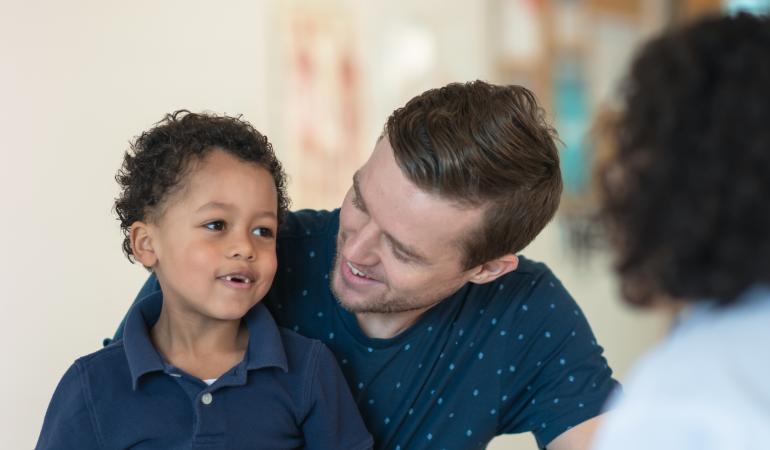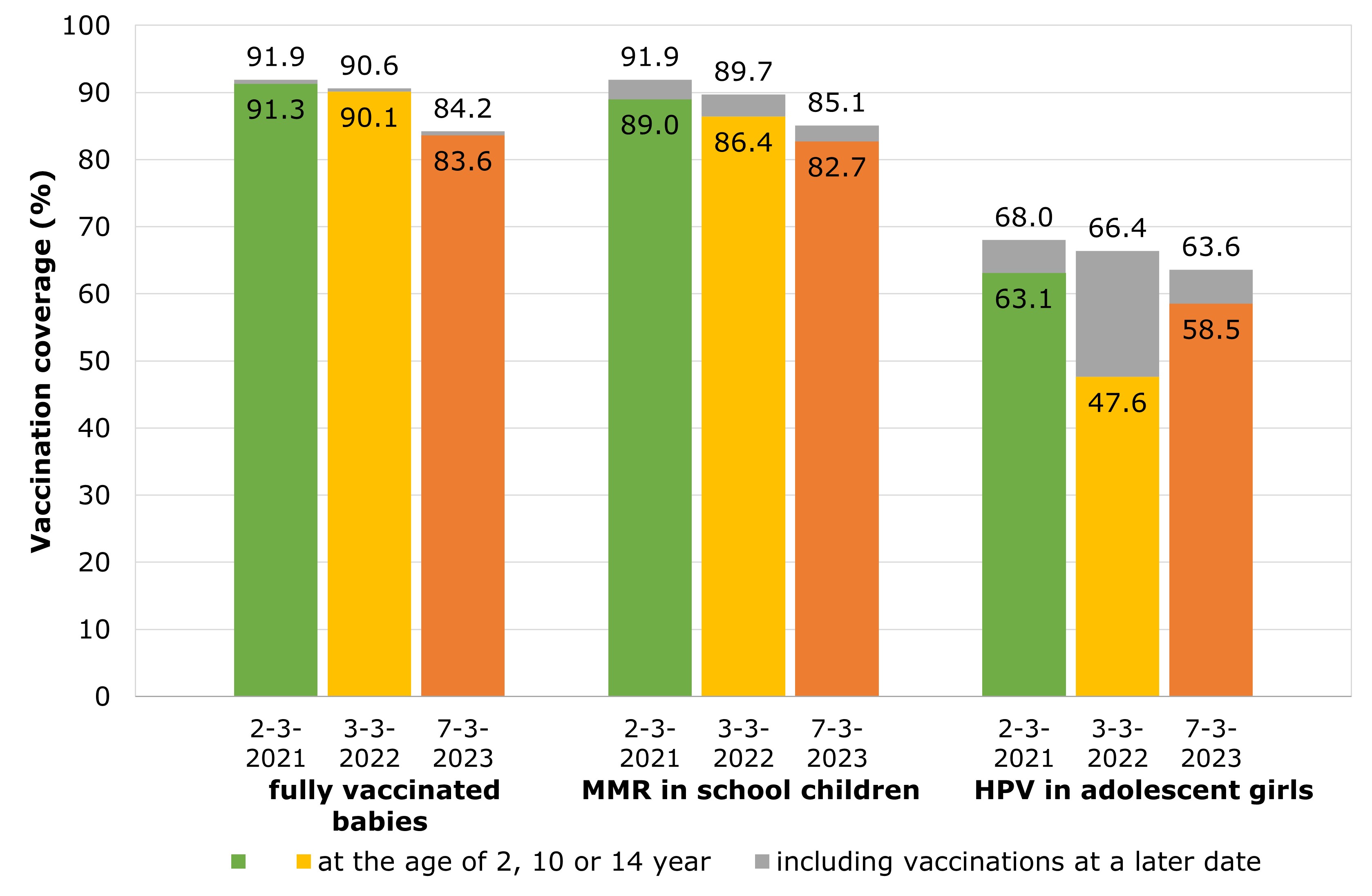
The proportion of children vaccinated within the National Immunisation Programme (NIP) has fallen for the second year in a row. This is according to the report ‘Vaccination coverage and annual report of the Dutch National Immunisation Programme for 2022’. RIVM is concerned about this decline. High vaccination coverage is important to keep people protected against serious diseases and to prevent outbreaks of these diseases.
In the Netherlands, children receive vaccinations for 12 infectious diseases that can cause serious illness. The majority of children participate in the NIP from birth (see the figure below). The report shows that registered vaccination coverage is about 2% to 5% lower than last year. Measles vaccination coverage for babies appears to be just below 90% for the first time in years. Vaccination coverage above 95% is important to protect all residents of the Netherlands against this disease. If that rate is not achieved, measles is more likely to resurface.
Impact on participation later in life
Vaccination coverage for the other diseases in the National Immunisation Programme has also fallen for babies up to two years of age. For optimal protection, it is important to follow the NIP schedule. Once children have started, they are more likely to get their vaccinations later in life as well. These include the follow-up vaccinations at age 4 (diphtheria, pertussis (whooping cough), tetanus, polio), age 9 (mumps, measles, rubella (German measles) and diphtheria, tetanus, polio), age 10 (human papillomavirus (HPV)) and age 14 (meningococcal disease).
Partly anonymous data
RIVM is unable to provide the exact figures on the extent of the decrease. This is because some of the data RIVM has been receiving on vaccinations since 1 January 2022 are anonymous. This happens when people do not give permission to share their data with RIVM. Anonymous vaccinations (on average 5% of vaccinations in 2022) cannot be included in vaccination coverage calculations. This number is still small at the moment, as the figures in this report mainly concern children who had already received their NIP vaccinations before 2022.
Opinions about vaccinations less positive
One possible cause of declining vaccination coverage is that young parents have become less positive about vaccinations. This was revealed in a 2022 RIVM poll compared to a 2013 poll. European research has also shown an increasing lack of trust in vaccines and vaccination among citizens in multiple countries. This may be due to the coronavirus pandemic. However, most parents are still positive about vaccinations.
Improving vaccination coverage
RIVM is currently in talks with vaccination providers to see how vaccination coverage can be improved. Removing barriers for parents and teenagers is important in this regard, for example by creating more options for where and when they can get their vaccinations. Another solution could be to give parents more opportunities to speak with professionals. In addition, RIVM has launched a new research programme that will provide insight into how best to inform people about vaccinations, how to help them make vaccination decisions and how to make vaccination as accessible as possible.
Explanatory notes: MMR = mumps, measles, rubella; HPV = human papillomavirus infection; complete = all NIP vaccinations received according to schedule by age 2.
Figure P1 Vaccination coverage (%) as of 7 March 2023 compared to 3 March 2022 and 2 March 2021; determined at 2 years of age (babies), 10 years of age (school children) and 14 years of age (adolescent girls); in grey: vaccination coverage including vaccinations given at a later date. Vaccination coverage is determined every year in early March. Note that this is the vaccination coverage based on vaccinations recorded per person. The figures do not include anonymous vaccinations and therefore provide a lower percentage than the actual vaccination coverage. At the moment, the impact of this is still relatively limited because a large proportion of children had already been invited for NIP vaccinations prior to 2022.
